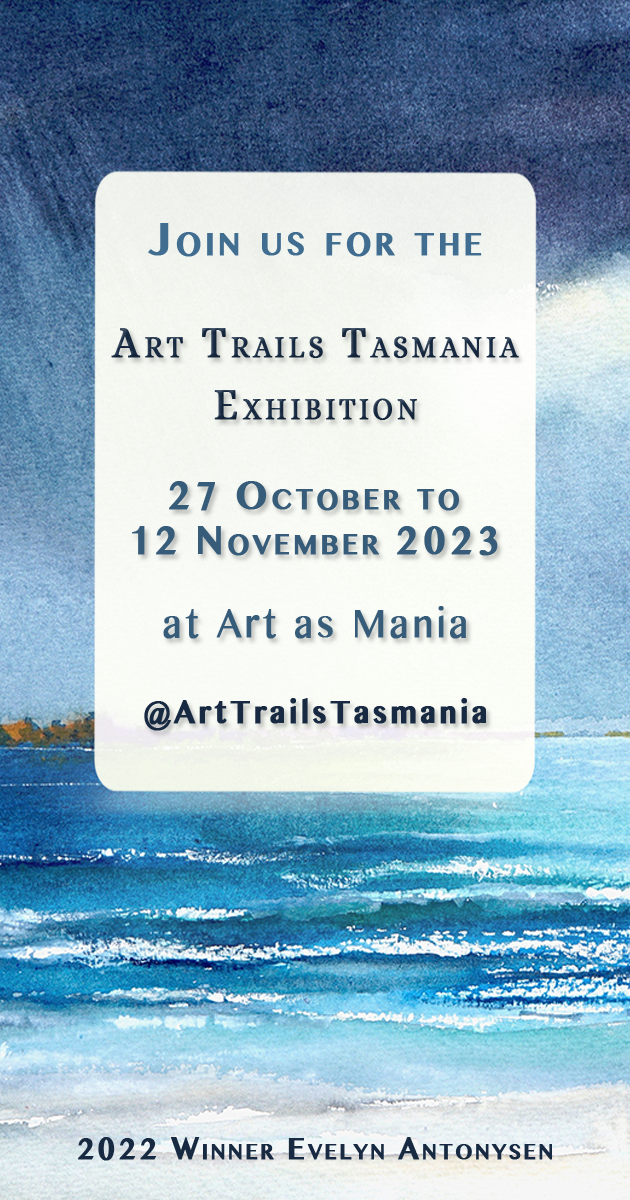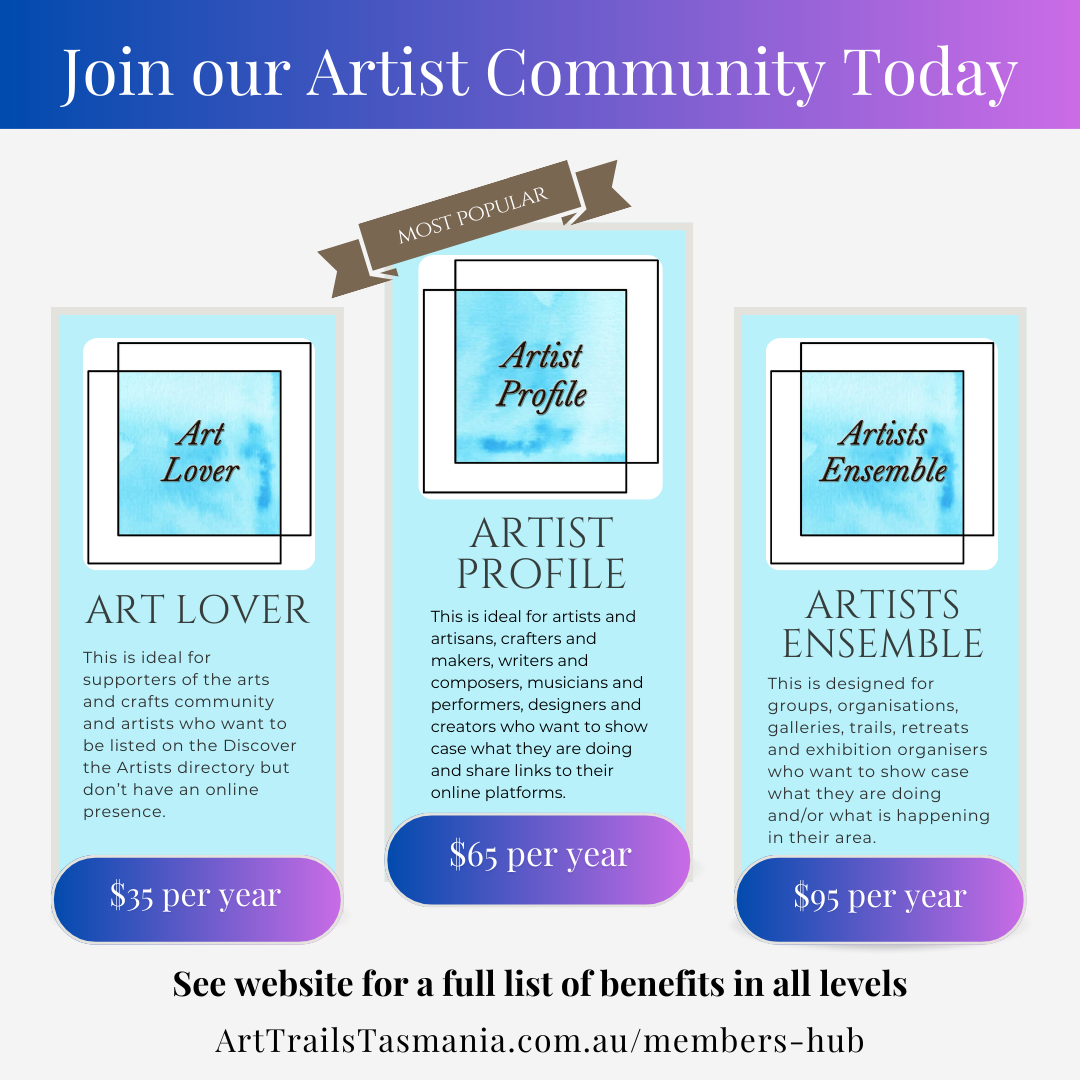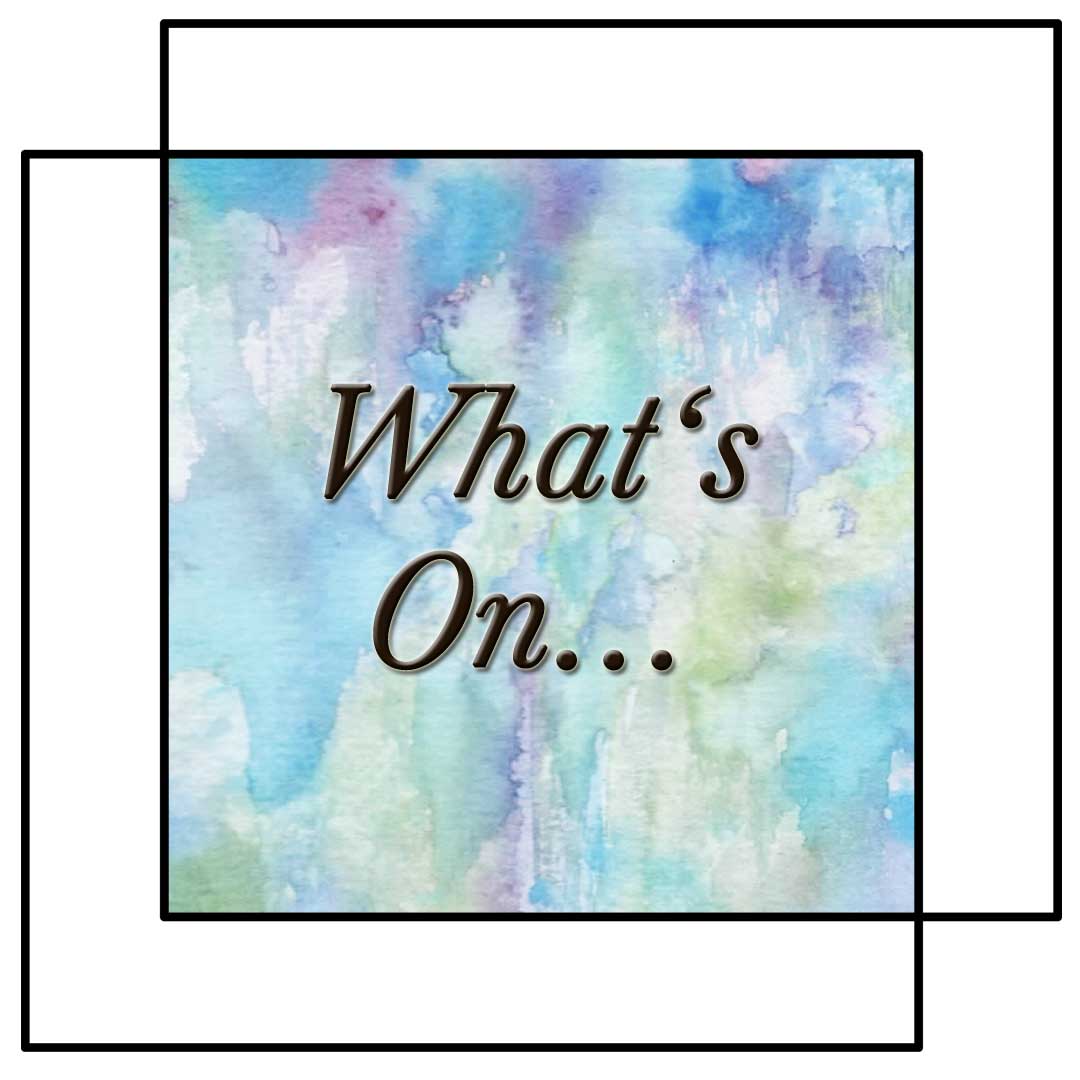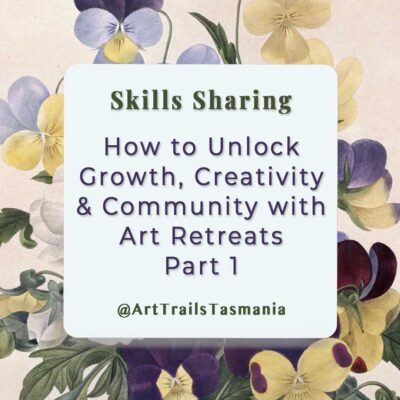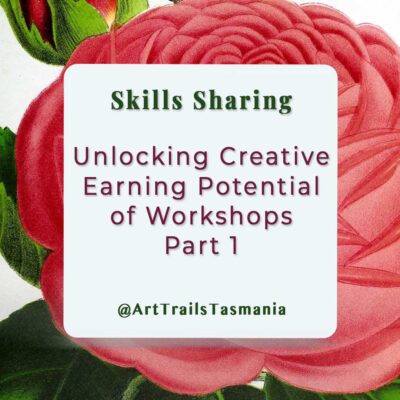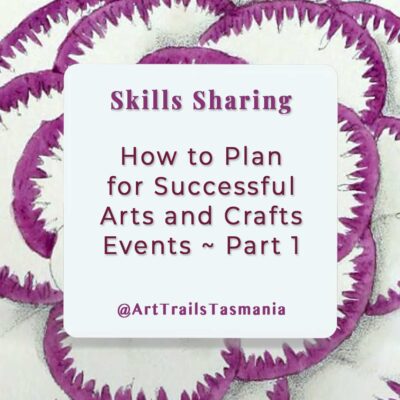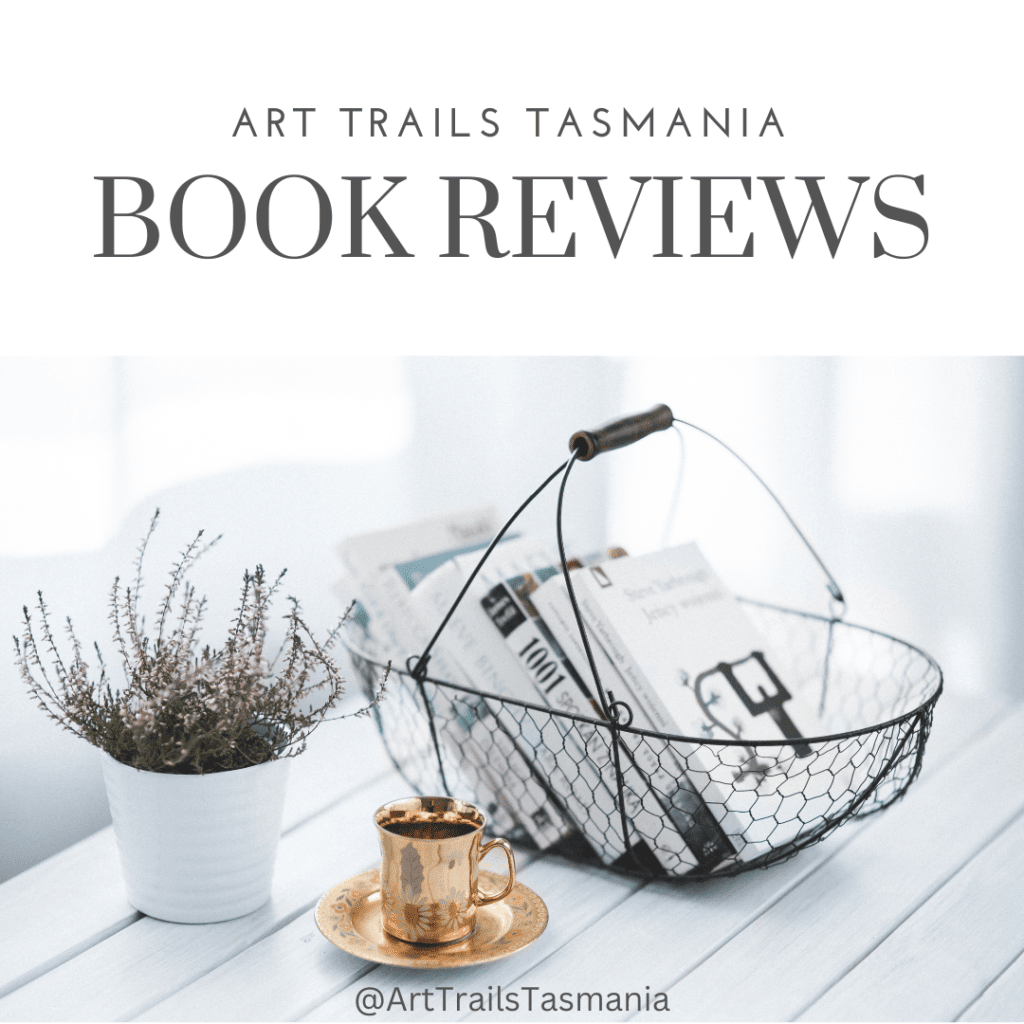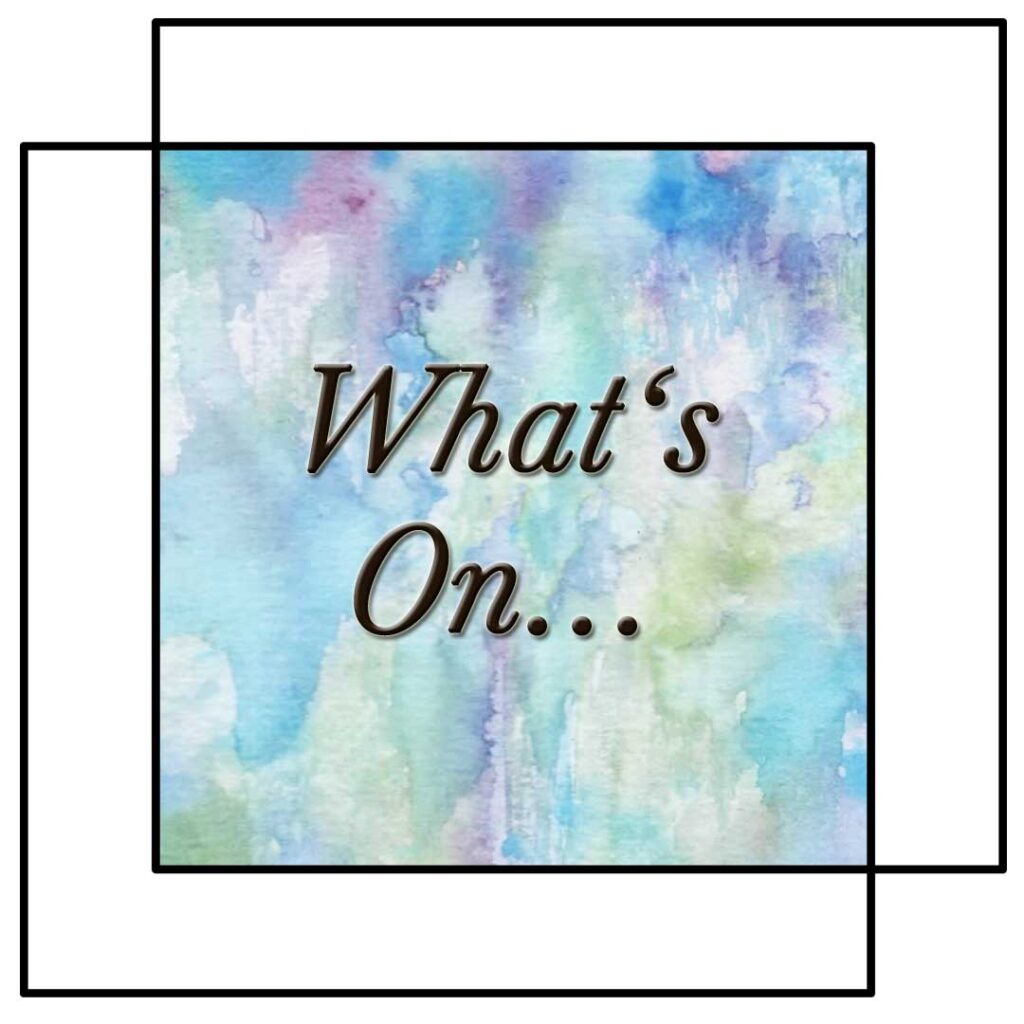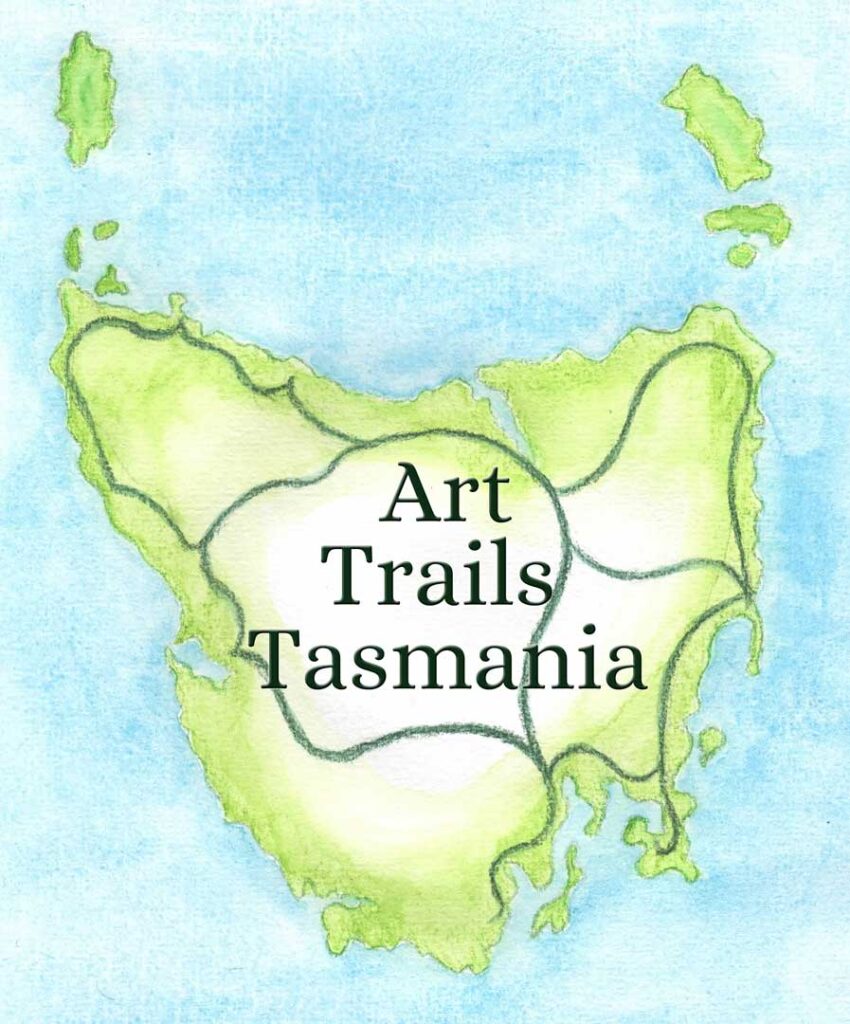My 8 Money Tips for Artists
As a self funded artist making my living from what I make and sell for over 20 years I thought it could be useful for you if I shared some of my lessons learnt about money, so here are 8 money tips for artists.
More specifically, what to do to block money wasting drips, allow more money to flow in and to create a secure and abundant financial future.
I’m including a bundle of practical links through out so I hope you find them useful.
Here are my 8 money tips for artists to help you flourish plus a handy PDF for keeping track of the details!
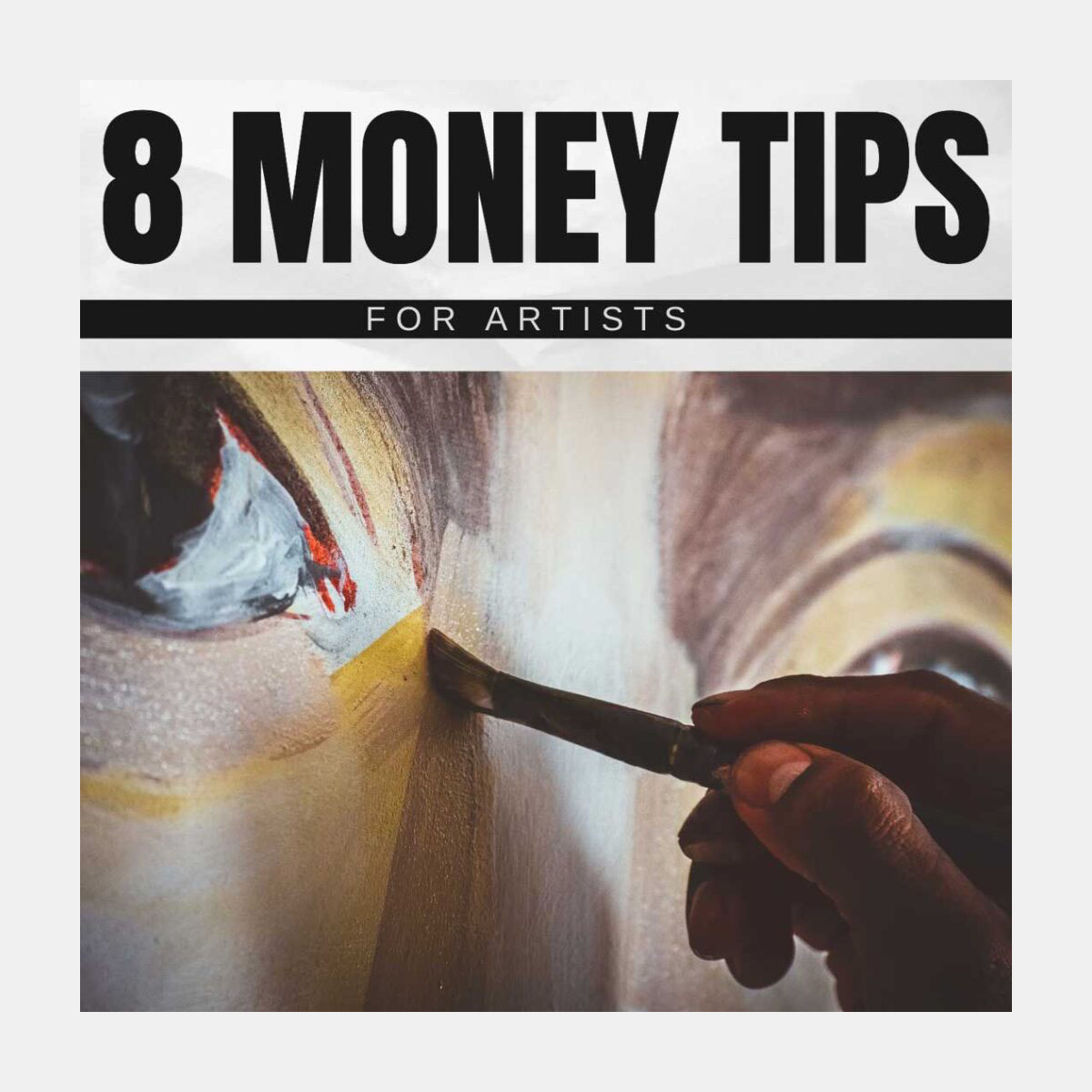
1. Be happily organised with your details to make life easier.
By this I mean have easily to hand the details that make life easier. For example:
- your Tax File Number (TFN)
- if you have a registered business, your ABN
- the BSB and account number for your bank accounts, eg. personal and business
- insurance details numbers
- key membership numbers and details
- driver’s licence details
- any Government agency cards details, eg. Pensioner card
- your last two tax returns
- the serial numbers of your electronics, eg. your laptop’s serial number in case of loss or theft
What else is important to you that you would you add to this list?
Also know where stored:
- your birth certificate (you can apply online with your state register, click here for Tasmania Birth, Deaths and Marriages)
- any marriage certificates, as well as formal separation paperwork
- property deeds and wills
- power of attorney and guardianship papers
- pet registration papers
- vehicle registrations and handbooks
What would you add to this list for your own money tips?
By knowing where these details are it makes it so much easier to do game changing things.
It’s always better to be as up to date as possible with your tax returns, especially as some grants and rebates (so government money coming to you) depend on them being done.
Written Down or Online?
Personally I’m one for writing down important details and not storing them online – mainly because I have a healthy respect for cyber crooks.
After the Black Summer fires I’m now also in favour of using those fire proof (to 1,000 degrees) document boxes. I don’t have bucket loads of cash or crown jewels to protect but I do want all those family certificates protected.
Keeping Track of Details and Money Art Trails Tasmania. There’s plenty of room for you to customise it to best suit your needs.
The Freedom in Being Organised
Just being organised with these sort of every life details can have you feeling organised, ready to do the things that matter to you (like register a business, set up bank accounts, look after your super, formerly change your relationship status, buy money, and the list goes on).
Not being organised with these details can be the excuse for not doing the things that matter, or delaying them and therefore delaying or missing out on great opportunities.
For me, being organised with these details means I have more freedom to do what I desire, simply because I’ve empowered myself.
2. Pay yourself superannuation, even if it is just a few dollars a week.
Most of us self employed artists don’t receive an employer’s super payment and it is really important to keep having money flow into your super.
Setup an automatic payment into your supper account from your bank account. You can setup it up for weekly so a small amount is always heading into your super.
My contributions are designed to cover the administration costs charged to my account and add to the balance so there’s growth.
Super Co-contribution Government Payment Money Tip for Artists
Another benefit for adding to your super yourself is the Federal government’s Super Co-contribution payment. Which, in effect, is a reward for low and middle income earners for putting money into their own super.
The government gives you money for contributing. They automatically calculate whether you’re eligible for this payment once the ATO has your tax return for that financial year. So you need to make sure you:
-
- have payments going in,
- that your Tax File Number (TFN) is attached to your super account,
- have your tax return completed and submitted to them,
- have one superannuation account.
Getting another few hundred dollars into your super is always a welcomed experience.
Personally I find the ATO’s Super contribution calculator challenging to use and getting straight, plain English answers from the ATO is also difficult (they are very cautious about appearing to give advice and don’t come from a self employment background. It can be easy to feel like they only speak their language rather than a common one, don’t be put off by this).
From what I was able to determine the example they give of a bloke called Angelo is the best guidance available for the amount of personal contribution needed to get the maximum government payment/contribution. Add up your own contributions for the financial year and top up if needed to get the full payment.
3. Sort out your superannuation accounts and bring multiple accounts into one account.
This one was a biggie for me and a LOT easier than I had feared (how limiting are those stupid stalling fears!).
Like many Australians I had ended up with a collection of superannuation accounts as each place I had worked at had opened up a new super account for me so they could fulfil their legal obligations to pay me super.
I hadn’t realised at the time that I needed to let them know about my preferred super account details.
The biggest failing of having multiple super accounts is the shear waste of money in paying multiple fees!
Finding All Your Super Accounts Money Tips
The easiest way to find out whether you have multiple super accounts is to go to the ATO Searching for Lost Super and fill out their forms. Pick the option that suits you best.
You’ll need to have some details for them such as your Tax File Number (TFN), date of birth etc, read through their list before starting on the forms.
Finding a Super Fund That Is Worthwhile
I have a banking and insurance background from the 1990’s and even I find the details provided by superannuation businesses about comparing funds challenging to understand. And they’ve done this on purpose.
Thankfully the Federal government has a tool to help decide which superannuation funds have the better returns and lower fees: YourSuper Comparison Tool.
I’ve found this tool really useful. The key thing I needed to get my head around is they use the proper legal, registered names of the Super funds and these tend to be different to the names they use in their advertising. A bit like how you see on your debit/credit card statements a different name for the petrol station than their sign out the front. The simple solution would be for them to include a column with the brand name of the super fund that we see as customers.
How Much Time Is Needed?
When I decided to get my super sorted I figured I’d do a bit as I went, figuring that if I had it all sorted within a month I was doing well. What mattered was to look back at the end of the year and be happy with getting it done. I really didn’t want to be wasting money on useless fees and I wanted to be earning interest on my investment.
1. So start with checking if you have extra super accounts hiding somewhere.
2. have a think about what super fund you want to be having – what sort of returns, investing into what sort of products (coal, renewable, international and/or Australian shares etc).
3. pick a super fund that you want to be making regular payments into.
4. Merge any additional super accounts into the one you do want. Previously I called the super fund that I wanted to keep and asked them for advice on how to merge over a separate fund.
5. Set yourself an annual date to look over your super and make changes as you want.
I’m fairly happy with my current super fund but I do want more transparency during the year as to how my invested funds are performing allowing me to them around to what looks after me. I know that the super fund knows exactly how each investment is going and that they are choosing not to tell their customers. Whereas a bank is required to tell you. This will only change with Federal government intervention, by them changing the rules and they have been making some positive and useful steps, just slowly. You can always email your local federal member asking them to take useful action with this.
Why ATO Info as Part of Money Tips
You’ll see that I keep providing ATO links for all this info about super. That’s because their skin in the game is about all of us having healthy super balances – the more we have in our super the less they will pay out in aged pensions in the future. The private organisations are naturally motivated by profit, so they’ll tell you what they think you need to know to give them your super.
4. Keeping business and personal bank accounts separate.
One of the best pieces of money advice I received early on was to keep separate accounts for personal and business. And never mix them. This is a very important money tip.
So I have a debit card attached to my business transaction account and use that solely for work purchases. Every purchase from the business account is done with either the card or a transfer online.
I have a separate card attached to my personal account and use that solely for personal shopping.
This practice of keeping them constantly separate makes doing accounts for tax MUCH easier and therefore saves you money.
It is such a simple habit to build and maintain.
Managing Receipt Explosions
And as for receipts. I’ve always kept them but often feel like there are mini explosions around the place as they tumble out. So now I’ve a new and really effective solution that makes me happy: I put all the receipts as I go into a beautiful fabric purse in my handbag. At the end of the month they are all shoved into the accounts folder – no explosions allowed.
I find the electronic receipts a little more challenging. I know I’m meant to simply move them (in email format etc) over to a labeled online folder but, to be frank, I never seem to spend enough time on my email to do this admin work. So when I settle down to do my accounts I feel like I waste time doing searches and trying to remember as I look at the statements what happened with the digital receipt. Lesson learnt, move the darn digital receipts into a folder as I go.
5. Setup your bank accounts to work for you.
Years ago I thought just having a general transaction account for my business was perfectly good.
The problem I had with it was I kept spending my savings!
So the simple solution was to set up a linked savings account to it and store my little stash in there and keep the transaction account for everyday and regular payments.
It’s easy enough to move money back into the transaction account when needed.
Two of the best features of the savings account is that money can only be withdrawn through the linked transaction account. So no nasty piece of rubbish can clean out the savings account. The other feature is that I earn interest – a very small amount but I do like seeing it.
Also consider what level of savings do you want to keep in the savings account with its tiny interest payments. Do you want to put some into term deposits (called TD’s), better savings accounts, super, shares etc?
If you’re paying GST then put that money into a separate savings account so it is ready to go and you don’ t feel upset to see your precious savings disappear. Treat the GST /tax savings account as dead money and never touch it. If there are funds left over from the tex return process then find joy in that and do something with them that makes you happy.
Credit Cards Versus Debit Cards
When I got out of school I fell for the schmick advertising about credit cards and foolishly, naively and immaturely thought that I was being GIVEN the money, not properly understanding that I was BUYING the money on the credit card. Needless to say, I got into a pickle and learnt a very healthy lesson. Thankful it was only for about $1,500 but it was a bloody nose for me then.
Now, I prefer the debit card system. They are linked to my transaction account and I can only spend what I have.
I do use credit cards but I’m very conscious that I’m buying the money and paying for it with interest and annual card fees.
Another early on lesson was to always pay more than the minimum amount and chuck extra cash onto it when ever possible.
If you’re being charged 10-25% on your credit card balances then the best form of savings is knocking down that balance, there are very few savings accounts that are paying you more than what you’re charged in credit card interest.
Online Shopping and Cards Money Tip
Given my finance background and having a couple of friends who have been badly scammed I’m quite sensitive about the risks I take with my debit cards.
I simply don’t use my main cards online or over the phone. It is easy enough to either use a service like Stripe or PayPal, because of the buyer protection setup, have a separate transaction account that’s topped up as needed and has a linked debit card, or one of those prepaid debit cards (think Australia Post, Qantas Travel Card etc) with money transferred for specific purchases.
If such a card gets hacked or stolen then it is next to useless for those inadequate criminals.
6. Have a plan so you know when what money is going out and what is coming in.
Doing this was a big game changer for me. I don’t know why it took me ages to figure out that I needed to do this. I did understand the concept of having a budget but I think I had the perception that the budget would restrict me.
So I don’t see it as a budget (and I’m only just realising that now, as I write, hmm).
Loving Feeling Safe with Money Tip
I do love feeling safe with my money. And knowing what is happening with it does make me feel safe.
To start the process of understanding what was happening with my money I looked at what was going out regularly, whether that was weekly, fortnightly or monthly. I simply looked at my statements to see what was happening.
So things like rent/mortgage, insurance, loan repayments, utilities, phone and internet etc.
I just wrote down when in the month they were happening.
Then I looked at when money was coming in, how much and what was needed to cover the generally fixed (rent/mortgage, insurance etc) monthly outgoings.
That simple knowledge made a huge difference. It let me know when I couldn’t buy something optional because I had to be sure to cover the fixed outgoing payments and when I could buy stock etc.
It gave me so much more stability and freedom. No more chasing my tail, feeling surprised.
There were a few quarterly and annual payments that took a while for me to figure out and I really should have looked at 12 months worth of statements rather than one or two.
Being organised with understanding and knowing what is coming up has meant that I can much more comfortably pay for things like the rent for the Tasmanian Craft Fair, road trips with their petrol and accommodation costs, trade shows, even thoughts of planning to buy updated technology in the coming year.
I also use a Planner Diary to map out what’s happening and put in notes about expenses during the year so I remember as I go.
7. Put away 10% of what you make.
OK, so this one is another tried and true money tip practice that gives joy.
It is just one we can easily forget to do.
Whether it is your pay or from sales of your work, put 10% away into a savings account.
If it is your paid employment put it in a personal savings account because you’ve already paid tax on it and you don’t want any confusion about that, you don’t want to pay tax on it a second time!
Or if it is from the sale of your work, via a sole trader (or other business structure) business or not, put it in the business savings account.
Emergency Money Tip
All of us need to have our emergency money, and whether you’re putting $20 or $200 a week away, it is always important to have.
A single mum girlfriend of mine, a survivor of domestic violence, is adamant that each of us needs to have a $5,000 emergency fund that is purely our own. It is the starting and growing that matters.
Even if you have the most wonderful and decent partner around, you need that sort of stash for the OMG experiences of bush fires, floods, car accidents, whatever it may be.
Life feels a lot safer having savings.
8. Read the Barefoot Investor and make your own list of actions.
As one of the best selling books out there I’m pretty sure I’ll be preaching to the converted when I say read this book and put your own to do list into action.
It is mainly for the partnered up, permanent employees rather than the self employed but there are so many nuggets of gold in it that it remains a must read.
Mojo Money Tips
One of the biggest things I took from it was the thought of a Mojo account. This is somewhat different to the emergency account idea.
Mojo is about feeling good. And I love to feel good about money. Because when you feel good about something more of it comes to you.
I also receive Scott Pape’s money tips email newsletter and while I don’t always get to read all of it, I find it a useful reminder to be doing the money things that will give me joy.
Scott does cover super really well and I was quite proud of myself for having already sorted out my super accounts. I did like taking on board his advise and making some tweaks to my super set up and I’m enjoying the results.
Allowing Financial Prosperity to Flow
I have far more fun in my daily life when I am allowing financial prosperity to flow into my bank accounts.
Being organised, making my super work for me, being on top of my tax returns, protecting my money and having savings is all about setting money things up so they easily flow.
Many years ago I missed out on a $1,000 rebate because I hadn’t done my tax return yet. It was late because I had fear around getting my exploding receipts and messy bank accounts organised enough. I still had to do the work, I still had to sort the receipts, do my books and submit my tax return.
By delaying it I simply cost myself free money that I really could have enjoyed. I still think I was dumb about that. Instead, I want to feel proud of myself and what I’m doing. It is far more fun.
8 Money Tips for Artists
Well that’s my 8 Money Tips for Artists, I hope you found some treasures for yourself in this and it helps you flourish and feel secure about your money.
How to Unlock Growth, Creativity and Community with Art Retreats Part 1
Discover how to run successful art retreats that boost creativity, income, & connections. Part 1 of a 2-part series with practical tips for artists by Art Trails Tasmania.
Unlocking Creative Earning Potential of Artist Led Workshops – Part 1
Part 1 on how to have financially successful artist-led workshops delves into what’s involved, the power of a calendar of workshops & the value of doing them.
How to Plan Successful Arts and Crafts Events
Running successful arts and crafts events can be a game changer for all involved, in part 1 we look at what is involved and how to achieve your goals easily.

